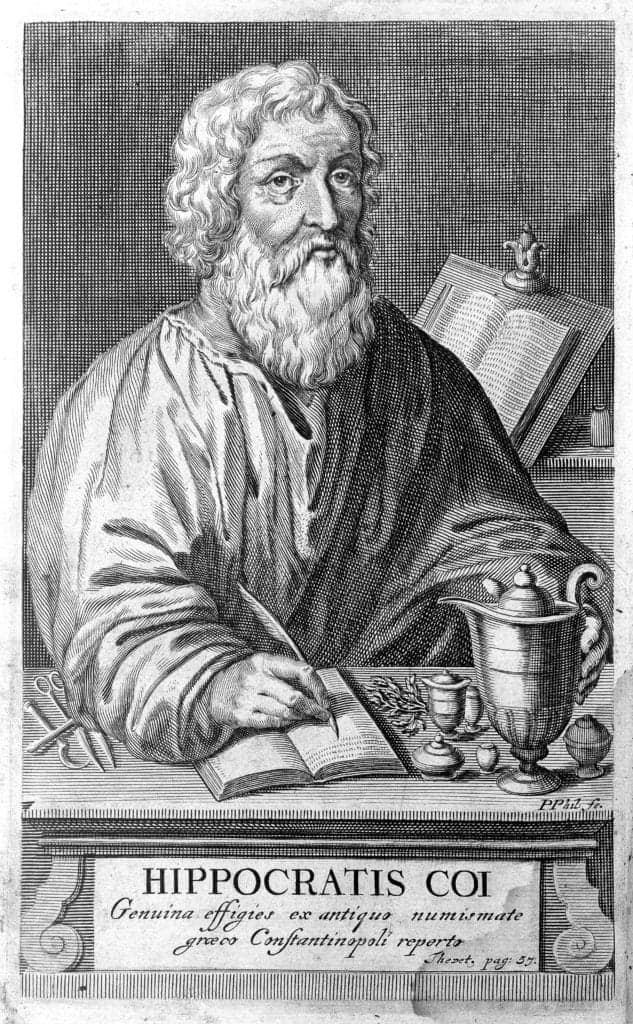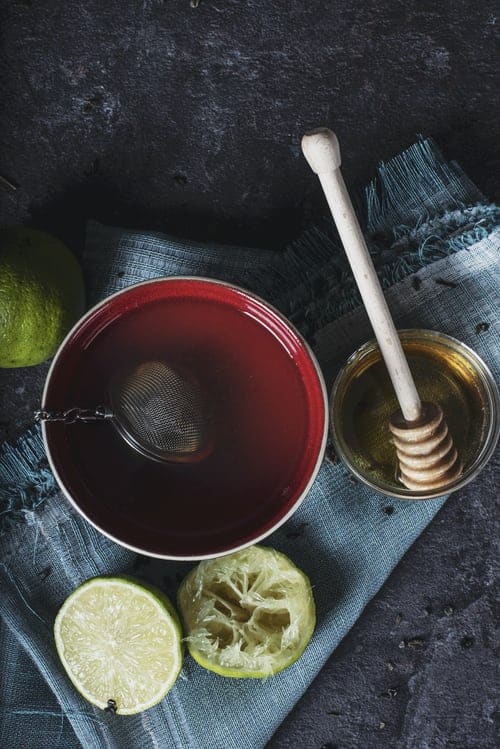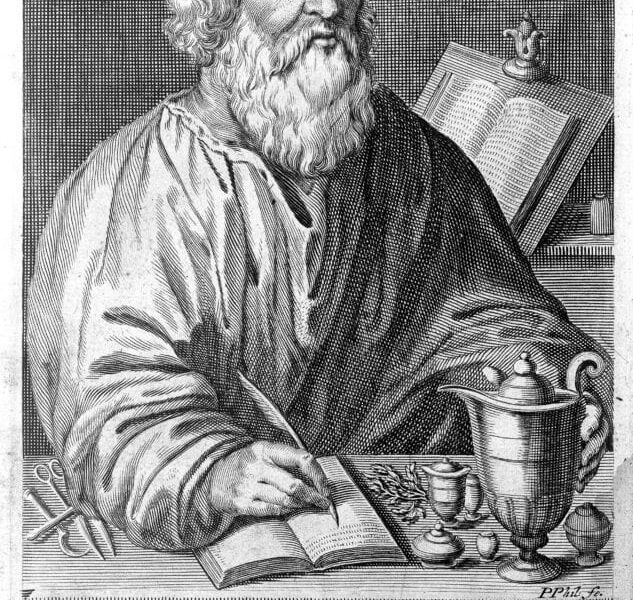What exactly did Hippocrates, the Greek founder of Western medicine, really have to say about food and health? Let’s find out!
Hippocrates’s famous quote “Let food be thy medicine, and let medicine be thy food” has never been more applicable than today.

At a time when the prevalence of eating disorders continues to rise (all made worse due to Covid lockdowns) within a society that concurrently continues to place hope in false claims of happiness and freedom through the latest greatest fad diet and ‘new age eating ways’, the message that ‘using food to heal and restore’ and that ‘food is the best form of medicine’ has become distorted and messy. People no longer know what that means. You just have to go onto Instagram and see the myriads of ‘health coaches’ that promise to heal your ailments with some supplement or diet. Worse still are our doctors who keep waving the prescription pad in our faces every time we complain of an ailment. Gut disorders are the worst example of this.
It is worth mentioning that the original Hippocratic oath, which all doctors must recite before graduating, states: “I will apply dietetic and lifestyle measures to help the sick to my best ability and judgment; I will protect them from harm and injustice.” It’s absolutely fascinating how little of this ‘testimony’ is then followed on treating patients by modern GPs at our clinics.
However, Hippocrates knew that diet and lifestyle played a major role in a person’s health, even in 390 BC.
The modern focus continues on the “must not” limited nutrition rules. These rules state what must be followed and the apparent consequences that must be paid if you don’t follow these ‘nutrition rules’.
These include keeping well away from carbs and sugar, veganism, vegetarianism, pescatarians, KETO, you name it!

If you are on a diet, it usually distorts your perception of your self-worth and value. “I’m restricting myself now, but soon I can enjoy all foods.” “I can’t go to that wedding looking like this.” “I will feel amazing once I lose all this fat around my stomach.”
This is all well and good (keep in mind that some people need to be on a restrictive diet for their health issues), but dieting culture has gotten way out of hand. It’s about time we took another look at the restorative power of nutrition to not only heal the body but also sustain life in all of its wonderful dimensions: body, mind, exercise and movement, and even relationships.
The initial and most prominent purpose of nutrition is to support the physical body. As mentioned above, social media’s ‘food message’ usually demonizes a whole food group or food type.
The truth of the matter (and don’t get scandalised) is that all foods, including carbohydrates of all types, proteins of all types, and fats of all types act in unison as a ‘support system’ for the body. This support system plays a major role in healing and sustaining our physical bodies and minds.
Now, it’s understandable that some people need to be on specific diets for health purposes, however, if you just want to lose weight and live a healthier life, doctors and (most) nutritionists now advise directly AGAINST cutting out a particular food group or severely restricting your calorie intake as this can cause disruption to the microbiome of the gut and cause major issues down the track.
So, let’s put Hippocrates’s famous words to good use “Letting food be thy medicine”:
- DON’T USE FAD diets to ‘lose weight fast’ unless you have been advised to by a healthcare practitioner. They will ruin your health (and gut) in the long run. Food can be both good and bad if consumed improperly. In another text by Hippocrates, the “De Alimento”, there’s a different statement about food, which translates that “In food excellent medicine can be found, in food bad medicine can be found; good and bad are relative.” Hippocrates was thinking about how certain foods can make you sick all the way back then! Nevertheless, it’s obvious from Hippocrates writings, that diet and lifestyle regime was at the centre of his theories about a doctor’s profound responsibility and the tools for treatment that a doctor can apply.
- Aim for healthy food daily but don’t overly restrict yourself.
- Drink water! At least 2L per day for optimal health, glowing skin and healthy hair.
- Get fresh air every day, an hour of walking a day keeps the doctor away. As mentioned above, exercise was also part of Hippocrates’s advice. He loved going on walks. He said, “Walking is a natural exercise, more than any other form of physical exercise.” Recent studies have come out stating that walking is more beneficial than running. A stroll after dinner was considered to be very beneficial by Hippocrates- “It prevents fattening of the stomach”, said Hippocrates around 400 BC.
- Prioritising sleep! Aim for 7-9 good quality hours a night.
To sum it all up, with great certainty, we can say that Hippocrates’ advice on food as medicine definitely applies today, if not more today than back then.
Get 3 whole and nutritious meals a day (unless your GP or health professional has advised otherwise) with good carbohydrates, protein and fats, walk each day and drink lots of water! Cheers to good health.

Note: This article is not intended to provide specialty medical advice, and the points in this article may not apply to everyone. Always seek professional medical advice when in doubt.

